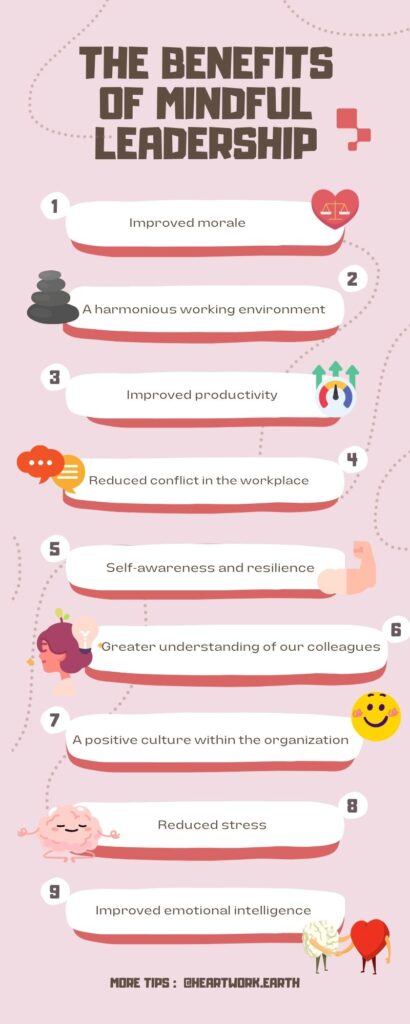To be successful in the modern business environment, you have to be adaptable to a rapidly changing world. Even the term ‘thinking outside the box’ doesn’t quite cut it anymore. Mindful leadership helps us navigate the myriad of challenges faced by top CEOs and business leaders.
If you’ve ever watched a blockbuster 1980s action film, like Rambo, you’ll probably be wondering what was the appeal? There’s no real substance to these films. Today’s action heroes are much more refined, enlightened, and in touch with their emotions. It’s no longer purely about testosterone and aggression.
The same applies to business leadership. There was a time when the marque of a true leader was defined by their hard and ready attitude. Business leaders were mostly male and embodied toughness and ruthless ambition. To make it, leaders were required to aggressively pursue their goals at any cost. Respect was garnered by the ability to fight your way to the top and not necessarily your ability to understand the finer details.
Times have changed and the modern business executive needs to be in touch with themselves to harness their full potential in a world that is very different to that of our parent’s generation. To lead effectively, we need to master self-awareness, enabling us to lead with more empathy and understanding. A mindful leader is acutely aware of the human aspect of business and not purely concerned with financial statements and productivity reports.
At HeartWork, we have been examining the challenges faced by executives in the modern business environment. Over many years of research and practice, we have developed our own notion of mindful leadership, whereby managers go through a process of self-examination to gain a better understanding of themselves and their environment. More recently, McKinsey published an interesting book on the topic, entitled The Journey of Leadership: How CEOs learn to lead from the inside out.
Whilst many CEOs have acquired the obvious skills of financial acumen, strategic planning, and systems, few understand the importance of understanding their personal aspirations in the context of their organization. Hence the need to learn to lead from the inside out.
What is Mindful Leadership?
We are constantly evolving, one hopes, a better understanding of who we are and our influence on the world we inhabit. This is certainly true in the realm of business leadership.
Understanding mindful leadership requires one to step back and gain a new perspective on our priorities. Winning at all costs does not apply anymore.
We face new challenges like climate change, social responsibility, the importance of diversity, artificial intelligence, and a workforce with differing priorities. The old-fashioned approach to business does not equip executives to deal with these complexities. We need a new and more comprehensive understanding of the people within the organization to successfully deal with these issues.
Mindful leadership shifts our focus inward to master self-awareness, thereby empowering us to lead with more understanding, compassion, and to be more connected. We become more conscious. It enables managers to get the most from the people within their organization.
By observing mindful leadership techniques, we make decisions with more clarity. It enhances our ability to remain calm under pressure and focus on what is really important. Without this clarity of vision, it is easy for our judgement to become clouded by an immediate crisis, impeding our ability to see the big picture. By adapting our leadership approach, we are able to view things in context and make wiser decisions.
Mindful leadership embodies a basic understanding of self-awareness, emotional intelligence, and an understanding of our place within an organization. It creates a harmonious working environment where people understand the impact we have on others and our ability to influence them through positive reinforcement.
We can relate this approach to the old-fashioned carrot and stick philosophy. An employee who is motivated through encouragement and reward is going to be happier than one who is obeying out of fear. A happy worker is a productive worker. Mindful leadership is one of the most effective methods of achieving harmony, understanding, and a positive attitude in the workplace.
The emotional intelligence gained by mastering mindful leadership is a valuable tool in promoting harmony in the organization and dealing with interpersonal relationships. It is just as valuable when dealing with conflict resolution. Mindfulness gives one the understanding and empathy that is needed to relate to the people within your organization and help them deal with emotional and personal difficulties in a mature and responsible manner.
The inside-out approach to business leadership requires discipline and commitment. As a leader, you need to be aware of the importance of constant learning, listening, and personal growth. It requires you to be caring and to lead through inspiration.
It is a complex process and requires a deep understanding of the subtleties that make up our individual personalities. It also requires brutal self-analysis. We need to understand our weaknesses, identify where we can improve, then take on the tough task of self-improvement. Only when we fully understand ourselves can we begin to positively influence others.
Research has shown that most CEOs have little difficulty acquiring the most accepted tangible, logical business skills. However, the soft skills, dealing with emotional maturity, humility, and self-awareness, are more complex to understand and we have difficulty learning these principles. To achieve mindfulness takes a concerted effort but the results are worth the work.
While the traditional skills of business leadership should not be ignored, we need to combine these hardcore realities with the subtleties of understanding, compassion, and self-awareness. We need to advance to a more holistic understanding of business and our role in it.
The Benefits of Mindful Leadership
Once we fully understand the harmony of mindful leadership, the benefits become obvious. While these benefits are numerous, they will differ depending on the individual and the organization. Since the journey is a personal one, we all master these skills according to our individual strengths and weaknesses.
There are many benefits of mindfulness that could be considered universal throughout any type of business. These would include:
- Improved morale
- A harmonious working environment
- Improved productivity
- Reduced conflict in the workplace
- Self-awareness and resilience
- Greater understanding of our colleagues
- Reduced stress
- Improved emotional intelligence
- A positive culture within the organization

AI and Leadership
No discussion on business leadership would be complete without observing the effect of artificial intelligence (AI). It is the single most important technological advancement of our time. There are those who fear it and those who revere it. Regardless of how we feel about AI, there is one indisputable truth: it is going to affect all of us and how we do business.
There can be no doubt that many jobs are at risk because of AI. Many of the skills once considered of great importance to business leaders, like data analytics and interpretation, financial analysis, and most of the practical daily activities of the business can be performed more effectively and efficiently by AI. This leaves many questioning the relevance of a CEO or senior manager in the modern company. Are you going to be replaced by a bot?
AI may be superior to humans in many of the nuts-and-bolts operations within your organization. However, there is one thing a bot can never replicate; your humanity. A bot may be able to imitate human emotion, it will never feel it and, therefore, never fully understand it.

Within this context, it’s easy to understand why mindfulness is becoming increasingly important to execs of the future. While the bots crunch the stats and make basic decisions, we will have to assume the responsibility of maximizing our human capital and helping our teams adapt to a rapidly changing world.
To achieve these lofty goals, we will need emotional maturity, empathy, and a deep understanding of human nature. These are all things that a bot may be able to interpret but not understand. Our value lies in our ability to understand people, our vulnerabilities and our power. We need to understand the importance of humility, listening to others, and compassion to effectively lead the human workforce of the future.
The Leaders of Tomorrow
We live in a world of incredible, almost frightening, rapid change. It’s understandable that many are daunted by all the challenges we face. It’s easy to become overwhelmed by the increasing challenges we encounter daily, both personally and when dealing with the practicalities of business.
Market uncertainties, climate change issues, supply chain difficulties, diversity challenges, digital transformation, and cyber security are but a few of the many challenges we face. To cope with the tumultuous business environment, we need to have confidence and complete belief in ourselves. We also need to instill these values in the people working in our organization.
Mindful leadership has evolved out of a need for a new style of management, adapted to the needs of the modern business environment. Surviving in business has always been a case of adapt or die. Adapting to the constant, unpredictable, and rapidly changing world we find ourselves in takes a remarkable effort and a completely new skillset.
By empowering ourselves through mindfulness, we are better equipped to deal with these challenges and lead others through the exciting, sometimes troubled times that lie ahead of us.

